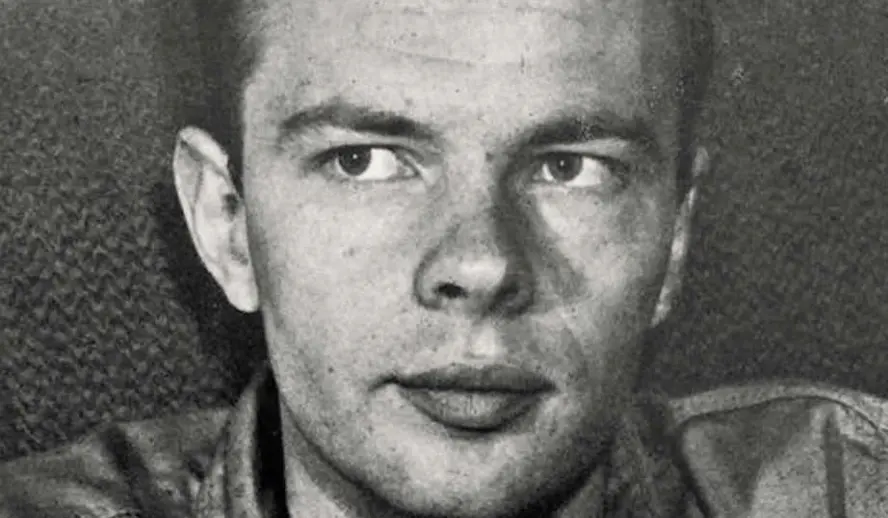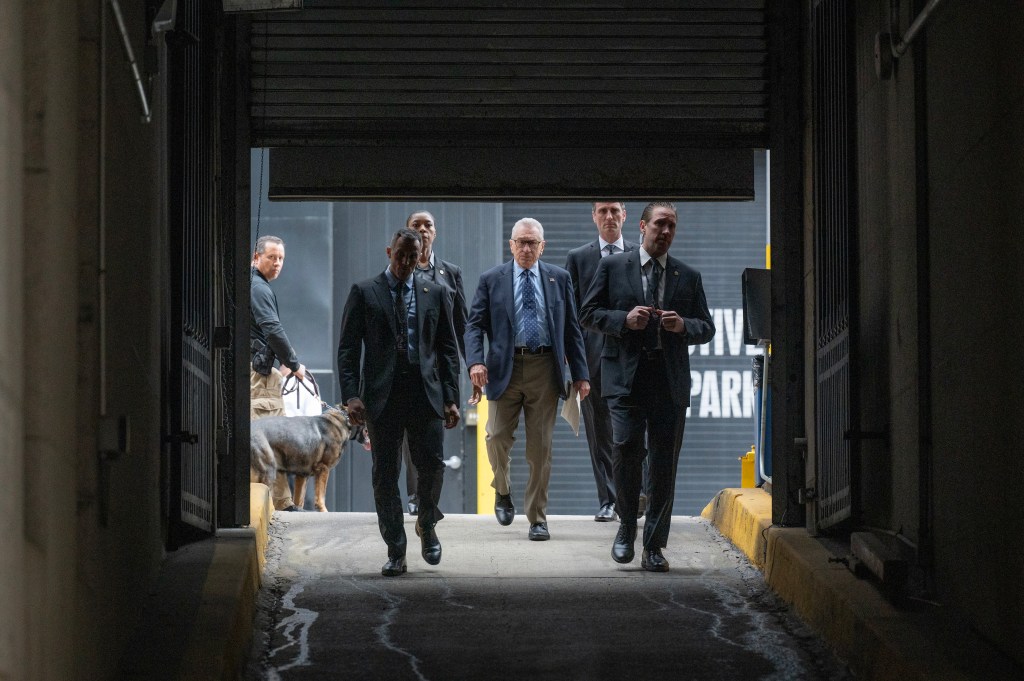Philip K. Dick, Pulp Philosopher
Between the Marvel Cinematic Universe and the novels of Andy Weir, we know that science fiction sells — except this was not always the case. Back in the 1950s and ‘60s, book publications of sci-fi novels and short stories were just taking off, the magazines that had dominated the genre had annual circulations in only the tens of thousands, and science fiction in Cinema was largely relegated to low-budget schlock. One of the first sci-fi authors to make a go at writing fiction full-time was Philip K. Dick, who sold his first short story in 1952 and didn’t stop until his untimely death in 1982. With some forty novels and over a hundred short stories under his belt, Dick was one of the most prolific authors in his field, although none of his novels were bestsellers; indeed, he was like Stephen King in an alternate timeline where King never became popular. Also, like King, Dick was not a poet, rather stringing sentences together in a workmanlike fashion, more relying on the totality of his work than the beauty of any given turn of phrase.
Out of all the sci-fi authors active between 1950 and 1980, Dick was perhaps the funniest — and also the scariest. His stories, which tend to tweak and play with the same set of themes, are often discourses on the nature of reality, and more specifically, the erosion of objective reality, his characters discovering reality-warping creatures or objects, or in some cases finding themselves to be molders of reality. If you ever take a course on literary postmodernism, don’t be surprised if you cross paths with Dick. Sadly, despite his importance in the marriage between genre fiction and philosophical inquiry, Dick would not quite live to see mainstream acceptance of his work; while his novel Do Androids Dream of Electric Sheep? was picked up for a major film adaptation, he wouldn’t live to see the finished product. Dick died relatively young, at the age of 53, some four months prior to the release of ‘Blade Runner’, and it was only at this point that his life as one of Hollywood’s favorite authors would begin.
Things to do:
- Subscribe to The Hollywood Insider’s YouTube Channel, by clicking here.
- Limited Time Offer – FREE Subscription to The Hollywood Insider
- Click here to read more on The Hollywood Insider’s vision, values and mission statement here – Media has the responsibility to better our world – The Hollywood Insider fully focuses on substance and meaningful entertainment, against gossip and scandal, by combining entertainment, education, and philanthropy.
‘Blade Runner’ (1982)
Based on: Do Androids Dream of Electric Sheep? (1968)
We have discussed ‘Blade Runner’ at length before, and how it’s one of the quintessential sci-fi movies of all time, sometimes considered the best sci-fi movie of all time. Ridley Scott’s third feature hit theaters as a critical and commercial disappointment, not helped by some pretty egregious behind-the-scenes meddling that resulted in (among other things) truly awful and unnecessary voice-over narration from Harrison Ford. The film’s virtues, however, namely its spectacular production design, ethereal and jazzy score by the late Vangelis, and ambiguous narrative, would lend it an increasingly fervent cult fanbase. ‘Blade Runner’ takes some big liberties with Dick’s novel, not the least of these being the reduced role of artificial animals in both the plot and worldbuilding, but it preserves arguably the biggest question Dick poses: “What makes us human?” What separates us, mankind, from a theoretical race of supermen that resembles us in every discernible way? What could separate us? While Dick’s novel paints androids in a rather ambivalent light, Scott takes a noticeably more sympathetic view, although both views would take part in the ongoing discourse over the relationship between mankind and artificial intelligence.
WATCH THE TRAILER of the Film and the Revolution: ‘Can I Go Home Now?’
The Children Around the World Continue to Ask the question
‘Total Recall’ (1990)
Based on: “We Can Remember It for You Wholesale” (1966)
The road to the next Philip K. Dick adaptation was a long and painful one. Producer Ronald Shusett and screenwriter Dan O’Bannon began adapting Dick’s short story “We Can Remember It for You Wholesale” into a feature-length script in the 1970s, and apparently Dick himself had read O’Bannon’s screenplay at one point. The script was deemed unfilmable, however, and O’Bannon would go on to write the script for Ridley Scott’s second movie, ‘Alien.’ Finally, after more than a decade, several directors and a studio (De Laurentiis Entertainment Group) went bankrupt, ‘Total Recall’ saw the light of day in 1990, largely thanks to Arnold Schwarzenegger backing the project. Paul Verhoeven, coming off the success of ‘RoboCop’, took the director’s chair, and a reworked version of Shusett and O’Bannon’s script made it to production.
‘Total Recall’ tells the story of an unassuming construction worker (played not so unassumingly by Schwarzenegger) who tries out an experimental program, designed to indulge people in whatever fantasy they desire. The catch is that when our hero takes on the role of a secret agent, he starts to think he really is a secret agent. Or is he? Is he a normal man tricked into thinking he’s an action hero, or an action hero tricked into thinking he’s a normal man? Despite its zany tone and ultra-violent content, ‘Total Recall’ delves into the classic Dick theme of the fluid nature of reality with gusto, ending on a perfectly ambiguous note that’s one for the ages. As both a high-octane action romp and a thought-provoking piece of science fiction, ‘Total Recall’ is a triumph, and it would garner an Academy Award for its visual effects.
Related article: Why Queen Elizabeth II Is One Of The Greatest Monarchs | Her Majesty Queen Elizabeth II of United Queendom of Great Britain & Northern Ireland (Video Insight)
Related article: – Want GUARANTEED SUCCESS? Remove these ten words from your vocabulary| Transform your life INSTANTLY
Related article: The 40th Anniversary of ‘Blade Runner’: Evaluating Ridley Scott’s Flawed Masterpiece – Hollywood Insider
‘Minority Report’ (2002)
Based on: “The Minority Report” (1956)
They removed the definite article, for some reason. Every Dick adaptation up to this point has had a big-name director at the helm, and ‘Minority Report’ not only continues the tradition but doubles down on it, with none other than Steven Spielberg leading the charge. After the divisive reception of his previous film (incidentally also a cerebral sci-fi outing), ‘A.I.: Artificial Intelligence’, Spielberg returned to doing what he did best: the traditional blockbuster, which, after all, he had helped codify. ‘Minority Report’ is based on one of Dick’s earliest short stories, about a cop who solves “pre-crime,” in which, thanks to psychic beings who see visions of the future, criminals are stopped before they can commit their wrongdoings. The future, however, proves to be not entirely predetermined, as these “precogs” do not always agree on the context of future events, or even the events themselves.
Dick’s short story, an allegory for rising authoritarianism during the Cold War, is greatly expanded and heightened into a sci-fi blockbuster of the highest order under Spielberg and screenwriters Scott Frank and Jon Cohen. Tom Cruise gives one of his best performances as a pre-crime cop who finds himself the prime suspect in a murder, killing a man he’s never met (at least not yet) in cold blood. Our hero must now evade his own organization, all while trying to prove his innocence. Has he been betrayed? Is there a grand conspiracy involving the precogs? Who is this man he is supposed to kill? While Spielberg may sound like a bad match for Dick at first, he handles the material with a sure touch, producing arguably his finest blockbuster of the 2000s. Like with ‘Total Recall’, ‘Minority Report’ would be remade, this time as a TV series, but don’t accept the more recent substitute — the original is where it’s at.
Related article: EVOLUTION: Every Ryan Gosling Role From 1995 to 2020, All Performances Exceptionally Poignant
Related article: EVOLUTION: Every Henry Cavill Role From 2001 to 2021, All Performances Exceptionally Poignant
Related article: All Best Actor/Actress Speeches From The Beginning Of Oscars 1929-2019 | Hollywood Insider
Related article: Reality’s True Reflections: The Unique Power of Science Fiction – Hollywood Insider
‘A Scanner Darkly’ (2006)
Based on: A Scanner Darkly (1977)
Now it was time for Richard Linklater to tackle Philip K. Dick. Linklater is something of a patron saint in the world of American independent filmmaking, breaking new ground with movies like ‘Slacker’ and ‘Before Sunrise’, and even dabbling in mainstream filmmaking with movies like ‘School of Rock.’ With all that said, though, ‘A Scanner Darkly’ has to be one of Linklater’s weirdest projects, being based surprisingly faithfully on what is perhaps Dick’s most despairing novel — only marginally sci-fi, but as dark as a black hole. The plot involves a man who, due to addiction to a fictitious drug, has his personality split into two: a small-time drug fiend, and a cop. All this sounds simple enough, except not only are the druggy and the narc the same person, but each is unaware of the other’s existence as being half of the same person. While the premise could lend itself to a thriller narrative, the result is much more akin to a slice of life with death and madness lurking around every corner.
Linklater had wanted to adapt another novel of Dick’s, Ubik, and Dick had even written a film script for Ubik back in the ‘70s with the hopes of it getting picked up, but Linklater found the project unfeasible. A Scanner Darkly, which would only barely call for high-concept technology and special effects if brought to the big screen, proved much more practical, and so Linklater went with it — but not without a twist. To make the near-future Los Angeles setting feel both familiar and deeply alien, not to mention the split personalities, Linklater shot the film in live-action (i.e., real actors and locations) before having it drawn over — an extensive rotoscoping process that greatly lengthened post-production. The result was worth the effort, though: not only is ‘A Scanner Darkly’ the most faithful of Dick adaptations, and not only is the animated aesthetic totally unique, but we get great performances from Keanu Reeves, Woody Harrelson, and Robert Downey Jr. pre-Iron Man.
Related article: Understanding the Star Wars Timeline
Related article: A Tribute to Francis Ford Coppola: One of Cinema’s Unforgettable Directors | ‘Megalopolis’, ‘The Godfather’ & More
Related article: #metoo Revolution: Powerful Questions That Need Answers
Related article: FACT-CHECKED Series: Timothee Chalamet and 32 Facts about The Young Superstar
Related article: ‘Saturday Night’: Does the Biographical Drama Do SNL Justice? – Hollywood Insider
Other Adaptations Big and Small
The 2010s saw no shortage of Dick, with The Adjustment Bureau releasing in 2011, based on Dick’s 1954 short story Adjustment Team and starring Matt Damon and Emily Blunt. One of the most notable adaptations of the past decade was Amazon’s The Man in the High Castle, which premiered in 2015. Based on Dick’s award-winning 1962 novel, the series painted a morbid and slightly psychedelic picture of an alternate United States ruled by Nazi Germany and Imperial Japan. Though it ran for four seasons, the first remains the strongest blend of alternate history and classic Dick themes like questioning objective reality. Another recent adaptation is the anthology series Philip K. Dick’s Electric Dreams, which also premiered on Amazon Prime in the U.S. Rather than adapt a single story, Electric Dreams took on ten, including some of Dick’s darker short works like The Father-Thing and The Hanging Stranger, with Bryan Cranston among its producers. Looking ahead, Amazon is also developing Blade Runner 2099, a live-action sequel series set fifty years after Blade Runner 2049, with Ridley Scott attached as executive producer and a release expected in 2026.
A Treasure Trove of Big Ideas
Philip K. Dick was so prolific, and his tales so often mind-bending, that it’s likely we’ll keep seeing them adapted for years to come. His writings, which explore the uncanny within the familiar, still feel modern despite the dated style of his prose. Even though he’s been gone for over forty years, Dick continues to feel like a prophet, a mad oracle violently struck by visions of mankind’s possible futures. While the internet never appears in his works, his recurring themes of ordinary people navigating corporate greed, misinformation, and surveillance remain as urgent today as half a century ago. His stories also lend themselves naturally to screen adaptations thanks to their vivid imagery and brisk pacing. With projects like Blade Runner 2099 already in the pipeline, it’s safe to say Hollywood will keep turning to Dick’s world of unsettling possibilities for inspiration.
By Brian Collins
Click here to read The Hollywood Insider’s CEO Pritan Ambroase’s love letter to Cinema, TV and Media. An excerpt from the love letter: The Hollywood Insider’s CEO/editor-in-chief Pritan Ambroase affirms, “We have the space and time for all your stories, no matter who/what/where you are. Media/Cinema/TV have a responsibility to better the world and The Hollywood Insider will continue to do so. Talent, diversity and authenticity matter in Cinema/TV, media and storytelling. In fact, I reckon that we should announce “talent-diversity-authenticity-storytelling-Cinema-Oscars-Academy-Awards” as synonyms of each other. We show respect to talent and stories regardless of their skin color, race, gender, sexuality, religion, nationality, etc., thus allowing authenticity into this system just by something as simple as accepting and showing respect to the human species’ factual diversity. We become greater just by respecting and appreciating talent in all its shapes, sizes, and forms. Award winners, which includes nominees, must be chosen on the greatness of their talent ALONE.
I am sure I am speaking for a multitude of Cinema lovers all over the world when I speak of the following sentiments that this medium of art has blessed me with. Cinema taught me about our world, at times in English and at times through the beautiful one-inch bar of subtitles. I learned from the stories in the global movies that we are all alike across all borders. Remember that one of the best symbols of many great civilizations and their prosperity has been the art they have left behind. This art can be in the form of paintings, sculptures, architecture, writings, inventions, etc. For our modern society, Cinema happens to be one of them. Cinema is more than just a form of entertainment, it is an integral part of society. I love the world uniting, be it for Cinema, TV, media, art, fashion, sport, etc. Please keep this going full speed.”
More Interesting Stories From The Hollywood Insider
– Want GUARANTEED SUCCESS? Remove these ten words from your vocabulary| Transform your life INSTANTLY
– A Tribute to Martin Scorsese: A Complete Analysis of the Life and Career of the Man Who Lives and Breathes Cinema
– Do you know the hidden messages in ‘Call Me By Your Name’? Find out behind the scenes facts in the full commentary and In-depth analysis of the cinematic masterpiece
– A Tribute To The Academy Awards: All Best Actor/Actress Speeches From The Beginning Of Oscars 1929-2019 | From Rami Malek, Leonardo DiCaprio To Denzel Washington, Halle Berry & Beyond | From Olivia Colman, Meryl Streep To Bette Davis & Beyond
– In the 32nd Year Of His Career, Keanu Reeves’ Face Continues To Reign After Launching Movies Earning Over $4.3 Billion In Total – “John Wick”, “Toy Story 4”, “Matrix”, And Many More




